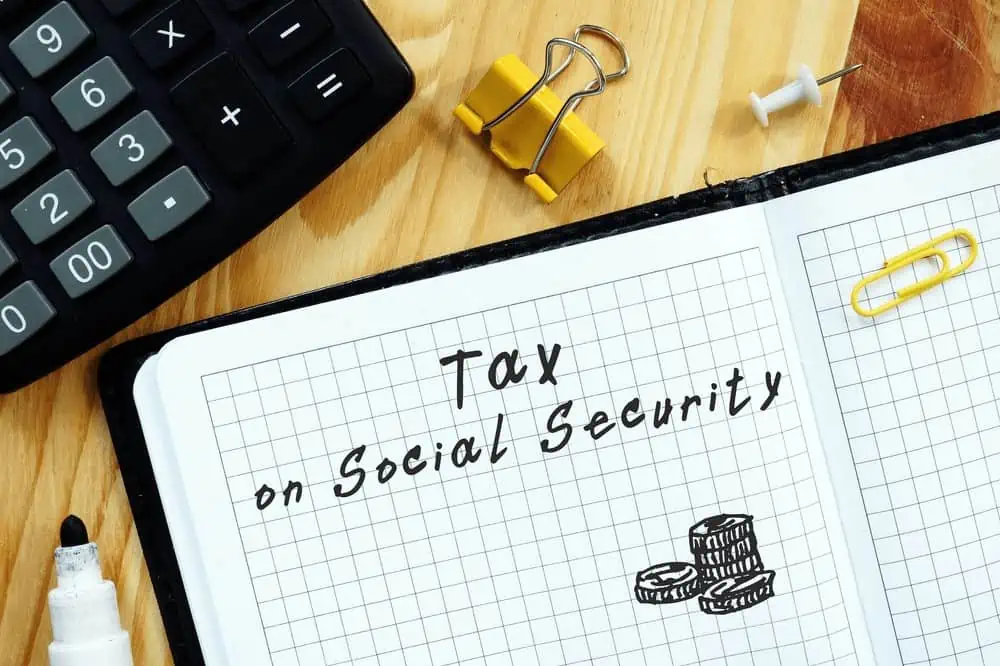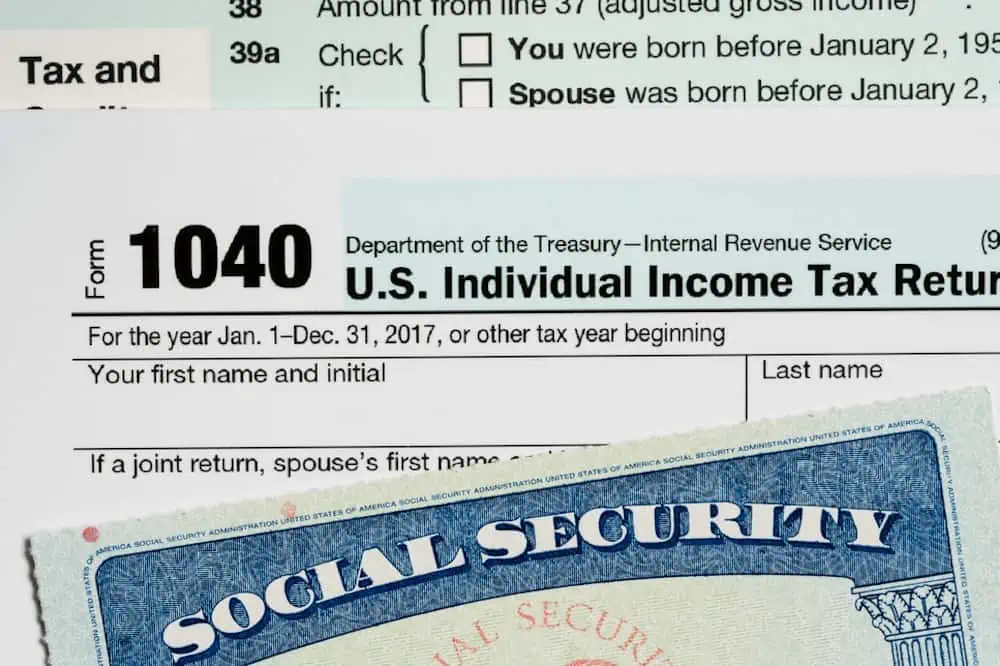If you’ve ever driven without GPS, you’re probably familiar with this situation. You know your next turn is coming up, but you’re not quite sure where it is. With each nearing street sign, your brain repeats, “Is this it? Nope. Is this it? Nope.” You eventually find the right street and feel a wave of relief. Or you turn too early and have to reorient yourself and tweak your path.
When you’re nearing retirement, determining exactly when you’re going to be ready can feel pretty similar.
Even if you’ve had a retirement plan locked into place for decades, you might get a little nervous as you get down to your last few years of work. That’s because a lot is riding on your decision to finally call it a career. Retire too soon, and you might find yourself in a financially unstable situation. Retire too late, and you might discover you’ve missed out on precious time with your loved ones, or that your body won’t let you enjoy the experiences you had on your longtime bucket list.
If you’re feeling the pressure, you’re not alone. This is an extremely common plight for Americans. A little under half of American retirees and former retirees (44%) have either returned to the workforce or are considering doing so, according to a 2023 survey conducted by Directions Research on behalf of the Fidelity & Guaranty Life Insurance company. And about 64% of pre-retirees are thinking about or have already taken action to postpone their retirement.
Fortunately, determining your retirement timing doesn’t have to be a guessing game. No, there’s no GPS system, but there are many signs that indicate whether you’re prepared or not. Read on as we provide a list of questions to ask yourself—the answers will help you determine whether you’re retirement-ready, ahead of schedule, or need to tweak your plan.
Table of Contents
Retirement Questions Everyone Needs to Ask Themselves

Retirement is primarily a financial decision. You might stop working, but your financial responsibilities won’t. Thus, many of the most pressing questions relating to retirement-readiness will deal with factors related to your income and liabilities.
But retirement isn’t entirely a financial decision. There are significant emotional and social aspects to consider, too. So a few of our questions will ask you to look not at a spreadsheet or an investment dashboard, but inward.
1. Do I Know What My Health Care Expenses Will Look Like?

Health care is a major retirement expense in retirement.
Nonprofit research organization KFF found that in 2022, households where all members are covered by Medicare spent more—on both a total dollar basis and as a percentage of total household spending—than non-Medicare households. Specifically:
“Medicare households spent an average of $7,000 on health care, accounting for 13.6% of their total household spending ($51,800), while non-Medicare households spent $4,900 on their health care, accounting for 6.5% of their total household spending ($74,100).”
While most Americans can get premium-free Medicare Part A, that doesn’t cover everything. Seniors might opt for Medicare Parts B, C, and/or D, which involve premiums. Some might even consider Medicare Supplement Insurance (Medigap). Not to mention, seniors likely will have to pay some combination of deductibles, coinsurance, and out-of-pocket costs, no matter how much insurance they have.
So you’ll have to account for all of the above, as well as a few other considerations:
— Will you need/want quality-of-care equipment that’s not necessarily covered (partially or completely) by insurance? Ex.: Mobility scooters, power-lift recliners, walk-in bathtubs.
— Do you expect to need a form of long-term care, such as skilled nursing or assisted living?
— In addition to your retirement income, do you have any money saved in a health savings account (HSA), which is a tax-advantaged account that can help you save for health-related expenses?
If you’re wondering just how much you’ll need to plan for, you can take a look at our study of healthcare costs in retirement. But as a for-instance, a 65-year-old woman enrolled in Part B, Part D, and Medigap, based on average annual prices for those plans, would need to have $111,600 saved by retirement to have a 50% chance of having enough to pay for all of their premiums and median prescription drug expenditures for the remainder of their lives. (A 65-year-old man in a similar situation would need to have $96,000; the difference can be chalked up to both different healthcare needs for men and women, as well as a life expectancy for men that is presently six years shorter than for women.)
Related: Retired But Too Young for Medicare? Health Insurance for Early Retirees
2. Am I Financially Responsible for Others?

A lot of retirement math looks at how much money a person needs to have saved up for themselves. But some retirees need to care for at least one other person.
A few questions that will factor into your financial responsibilities for others, then, will include:
— Do you have a spouse?
— Does your spouse collect Social Security, or will they? If so, how much?
— Does your spouse have retirement savings?
— Do you have any children that require financial assistance?
— Do you have any grandchildren or other relatives that require financial assistance?
— Do you currently have a pet and/or plan to have one in retirement?
Also, while you’ll obviously want to help your loved ones as much as possible, you’ll need to be wary of doing so at the expense of your own retirement.
For instance, supporting adult children already comes at a great cost to parents’ retirement accounts. A Savings.com study found that non-retired parents who helped their children (excluding children with disabilities) provided $1,476 in aid per month. However, monthly retirement contributions for those same parents averaged $609—60% less than they spent on their children.
Keeping your priorities the same in retirement, when you’re living on a fixed income, could create significant financial problems for yourself.
Related: Pensions Aren’t Dead Yet: 15 Jobs With Pensions
3. Where Do I Want to Live During Retirement?

Retirees often have a wealth of options when considering where to live.
Some people like where they are just fine. But many choose to move in retirement—sometimes to be closer to their children (and sometimes they actually move in with their children), sometimes to a warmer climate, or sometimes to a foreign locale that didn’t make sense when they were tethered to a job but is doable with nothing to tie them down.
In a One Poll survey conducted on behalf of ClearMatch Medicare, 33% of respondents who said they already have or plan to adjust their living arrangements downsized their space. Just under a third (28%) moved closer to family, the same amount moved somewhere quieter, and a quarter relocated to a warmer climate.
Your living situation will have a significant say in your retirement budget. If you pay off your current mortgage before you retire, you won’t have to factor a mortgage payment into your budget. You can also sell your home and use the proceeds to move. You can downsize, which will generally reduce payments including homeowners’ insurance and taxes.
But where you move can also impact how much house (or apartment) you can get for your money, how much you pay in all types of taxes, and a wealth of additional cost-of-living considerations.
Related: Best Schwab Funds to Hold in an HSA
4. What Will My Income Sources Be in Retirement?

First things first: Where will you get the money you need to afford retirement?
I’ll start with Social Security retirement benefits, which most Americans will collect at some point in their lives. Social Security checks vary from person to person, and you have more control than you might think over that number. How long you work, how much you get paid while you work, and when you retire can all impact the size of your Social Security retirement benefits.
For instance: You collect full benefits once you reach full retirement age (FRA), which varies from age 66 to 67 depending on when you were born. You can collect some benefits as early as age 62, but the earlier you take benefits, the more those benefits will be reduced. Meanwhile, if you actually delay taking your Social Security retirement benefits past full retirement age (up until age 70), you can actually increase the size of your check. (We provide more detail in our primer about when to take Social Security.)
But let’s say your full retirement age is 67, and that’s when you decide you want to retire and start collecting Social Security. Benefits are expected to replace about 40% of the average retiree’s annual pre-retirement earnings. Meanwhile, most financial planners will tell you that you need roughly 70% to 80% of your pre-retirement earnings to have a comfortable retirement.
Thus, you’ll need to consider how you’ll cover that additional 30% to 40%. Other potential sources of income will include:
— Retirement plans, which can include a wide array of accounts, including 401(k)s, 403(b)s, 457(b)s, traditional individual retirement accounts (IRAs), Roth IRAs, SEP IRAs, SIMPLE IRAs, even health savings accounts (HSAs), and more.
— Retirement savings in a taxable brokerage account
— Pensions
— Annuities
— Life insurance
— Part-time work
That leads us into the next question …
Related: Best Schwab Funds to Hold in an HSA
5. Do I (or Will I) Have Enough Money to Retire?

No retirement subject gets more oxygen than retirement savings.
It’s helpful to think about your retirement income as coming from two buckets: Your retirement savings, and all other sources (Social Security, pensions, etc.). All of the other sources set something of a baseline of regular income—your retirement savings determine how much more income you’ll be able to generate on top of that.
Retirement savings discussions usually point to a magic number. For instance, according to Northwestern Mutual’s 2024 Planning & Progress Study, Americans believe they will need $1.46 million, on average, to retire comfortably. Of course, this number will vary wildly from person to person; indeed, it varies from one generation to the next:
— Gen Z: $1.63 million
— Millennials: $1.65 million
— Gen X: $1.56 million
— Baby Boomers: $990,000
You’ll “generate income” from your retirement accounts by withdrawing money from them. But obviously, you need to strike a balance between being able to meet your retirement expenses and not bleeding your account dry. Thus, retirement accounts are typically invested in a way that they will produce both some price gains and some income (from bonds and/or dividends), helping your nest egg last longer.
That’s what the magic number represents: An amount of savings big enough that, once you factor in expectations for any portfolio growth, is big enough that you can withdraw enough to live on each month in retirement.
The closer you are to retirement, the less power compounding returns will have, and thus the less you can do to hit your number. Still, even if you’re just a few years away from your retirement target age and you think you’ll come up short, you can still take a few actions, such as making catch-up contributions in retirement accounts such as a 401(k) or IRA, contributing more to a taxable brokerage account, and perhaps even pushing back your retirement age. That last action, while possibly unpleasant to think about, is particularly powerful, as it will provide you with a.) more time to save, b.) more time for your investments to grow, and c.) a larger Social Security check thanks to delayed retirement credits (up to age 70).
Related: Best Vanguard Retirement Funds for a 401(k) Plan
6. Have I Talked to a Financial Advisor?

Sure, not everyone needs a financial advisor—but sometimes, people are overly confident about their ability to plan, save, and invest for retirement.
Consider this: The Goldman Sachs Asset Management 2023 Retirement Survey & Insights Report found that “nearly half of working respondents (47%) self-manage their retirement savings, yet only 13% correctly answered all of the financial literacy questions.”
Meanwhile, nearly half (46%) of workers said that managing their retirement savings was stressful. And when asked what would reduce their stress in managing their retirement savings, the most popular answers were “a personalized financial plan” (39%) and access to a professional financial advisor (32%).
The earlier you talk to a financial advisor, the better, because you’ll have more time to implement a plan and reach your goal. But even if you’re near retirement, a financial advisor can help give you a clearer picture of your retirement-readiness. And no matter your age, advisors can lift much of the stress involved with managing your retirement savings.
Related: 9 Financial Mistakes That Can Quickly Drain Your Retirement Savings
7. Is My Retirement Portfolio Diversified?

In the simplest terms, “diversification” is not holding all of your eggs in one basket.
Diversification provides a measure of safety by ensuring that all of your financial assets aren’t concentrated in any one investment. For instance, if you had 100% of your money invested in Example A Inc., and its shares lost 50% of their value, your entire investment would be cut in half. However, even if you merely split your money 50/50 in Example A Inc. and Example B. Inc, and Example A’s shares went down 50% while Example B’s shares remained level, your total portfolio loss would be much less, at 25%.
Of course, financial advisors suggest a much greater level of diversification than just two stocks.
Typically, investors are urged to own not just individual stocks but funds—be they mutual funds, exchange-traded funds (ETFs), closed-end funds (CEFs), or other investment funds—that can provide an investor with exposure to dozens, hundreds, even thousands of individual securities via a single ticker. They’re also advised to hold different types of assets: stocks and bonds are par for the course, but that can extend to “alternative assets” such as commodities (like gold or oil), real estate, even art.
However, not everyone fully understands this important concept: In the Federal Reserve’s Report on the Economic Well-Being of U.S. Households (2021), respondents were asked three questions—one about interest, one about inflation, and one about risk diversification. Less than half (43%) correctly answered the question about risk diversification. Fifty-three percent straight-up said they didn’t know the answer, while 4% tried to answer but did so incorrectly.
So before you say goodbye to working life, you’ll want to ensure not just that you have enough money heading into retirement, but that your portfolio is properly diversified (and otherwise built to achieve your retirement goals).
Related: 10 Best Dividend Stocks to Buy [Steady Eddies]
8. How Will Retirement Affect My Relationships?

A 2024 MassMutual poll found that 26% of retirees spent more time with family and friends than they expected heading into retirement.
Unsurprisingly, calling it a career provides you with many more opportunities to grow closer to those you hold most dear. You might be able to go on special vacations with your children, see a grandchild’s first steps, or reminisce with old friends over meals.
There are even tangible health benefits to spending time with loved ones. Says the American Heart Association: “A 2016 study by Swiss, German and Australian researchers found half of grandparents who participated at least occasionally in their grandchildren’s lives were more likely to be alive five years later than those who had no involvement. And in a 2014 study, researchers reported grandmothers who watched their grandchildren one day per week had higher cognitive scores than those who never did.”
Some people who are financially ready to retire hold out for just a bit more money, which causes them to miss out on bonding opportunities with loved ones. This is an important consideration when deciding when to retire.
Related: 5 Best Fidelity Retirement Funds [Low-Cost + Long-Term]
9. How Will I Spend My Time During Retirement?

Take a few moments to visualize your day-to-day life during retirement. You might envision traveling during retirement, cultivating a garden, babysitting grandchildren, or finally making a dent in your to-read list.
If you can financially afford the activities you want to do during retirement, it makes sense to retire sooner, rather than later. Many of your favorite hobbies may be easier to do while your mind is still sharp and your body can still handle it. If you’ve always wanted to hike a mountain, it may be easier to do so in your 60s, rather than your 80s.
That said, some people truly love their jobs and don’t have many hobbies. For some, their closest relationships are to coworkers, rather than family or other friends. If this sounds like you, you might not want to rush retirement.
Related: 5 Best Vanguard Retirement Funds [Start Saving in 2024]
10. Will I Have a Sense of Purpose in Retirement?

An unexpected potential downside of retirement, for some, is feeling a lack of purpose.
Let’s say a person who works at a nonprofit for decades believes they are making a positive impact on their community; once they retire, however, that feeling might dissipate. But it’s not just charity work that fosters a sense of purpose—people in careers of all stripes can feel lost after they call it quits.
Indeed, according to Fidelity Investments’ 2024 State of Retirement Planning Study, one of the top reasons people came out of retirement was “I needed purpose.”
But this isn’t a universal plight.
A different study—”The Effects of Retirement on Sense of Purpose in Life: Crisis or Opportunity?” published in the National Library of Medicine in 2021—showed “a sizable increase in purpose in life as an outcome of retirement.” This was particularly the case for people with a lower socioeconomic status who weren’t satisfied with their jobs.
Is your sense of purpose largely connected to your profession? Or can you find a sense of purpose in retirement through volunteer work, helping out your family and friends, or something else? Only you can answer this question.
Related: 10 Ways You Risk Losing Your Social Security Benefits

Social Security is designed to provide some financial stability to certain groups of Americans. But while it’s virtually guaranteed to those groups, it can, in certain circumstances, be taken away. We cover the numerous ways in which you can risk losing your Social Security benefits.
Related: 11 Ways To Avoid Paying Taxes on Your Social Security

If you’re looking to minimize the tax bite taken out of your Social Security benefits in retirement, you’ve got several available actions to reduce how much you pay each year. We outline several ways to avoid paying taxes on your Social Security benefits.
Related: How Are Social Security Benefits Taxed?

In many cases, Social Security benefits are subject to federal taxation. To learn how your Social Security benefits are taxed, we’ve got an entire guide to walk you through the calculation.
Related: 10 States That Tax Social Security Benefits

While most states don’t subject Social Security benefits to taxation, at least 10 states do tax Social Security. To see if you live in one of them, or you’re considering a relocation for retirement and taxation of your Social Security is a sticking point, we’ve got you covered with all of the details.
Please Don’t Forget to Like, Follow and Comment

Did you find this article helpful? We’d love to hear your thoughts! Leave a comment with the box on the left-hand side of the screen and share your thoughts.
Also, do you want to stay up-to-date on our latest content?
1. Follow us by clicking the [+ Follow] button above,
2. Subscribe to The Weekend Tea, our weekly newsletter to read more about investing, spending, taxes, and more, and
3. Give the article a Thumbs Up on the top-left side of the screen.
4. And lastly, if you think this information would benefit your friends and family, don’t hesitate to share it with them!





